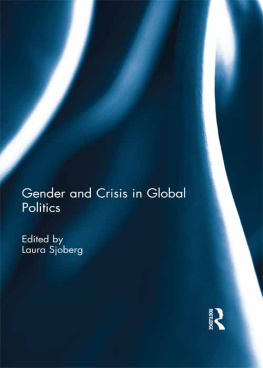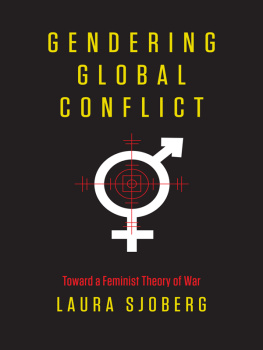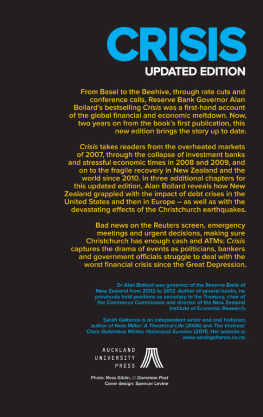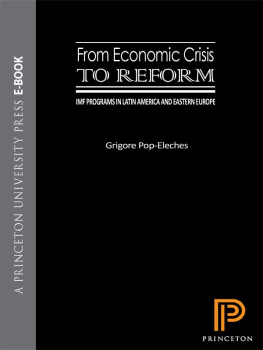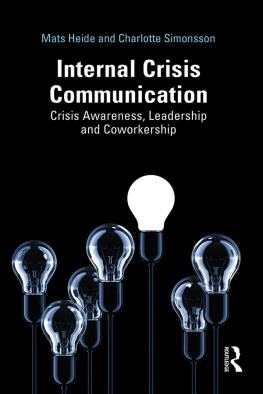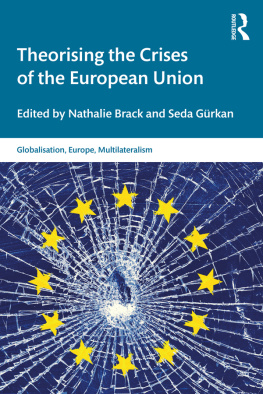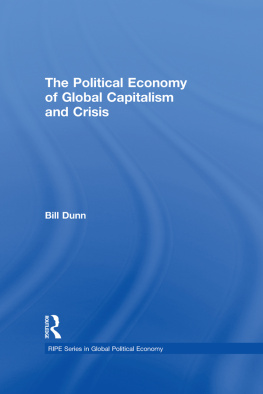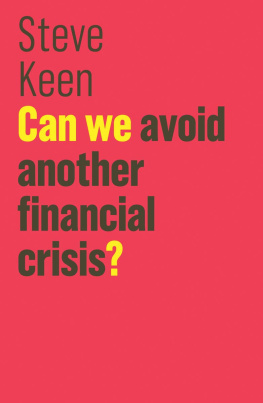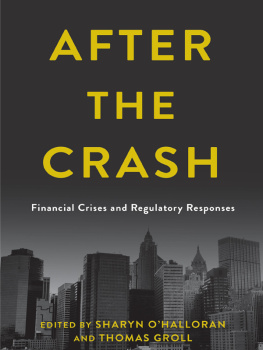Gender and Crisis in
Global Politics
The global political arena is (again) in a time of crisis. Different sources pay attention to different crises: the Global Financial Crisis, the Debt Crisis, the Crisis of ISIL/Daesh in Iraq and Syria, the Crisis of Israel and Palestine, and the Iran Nuclear Crisis have gotten significant attention in media coverage of global politics. But those are not the only crises that scholars and practitioners discuss. Environmentalists warn of ecological crisis, health scholars warn of disease crises, cyber-security experts suggest a coming information crisis, and migration experts warn of population crises. Feminist work on global politics has addressed many of these crises historical and contemporary in crisis language and without it, as well as a number of the non-crises that looking for women and gender in the international arena draws into focus. That work, however, had generally not explicitly theorized the conceptualization of crisis, its gendered dimensions, and/or gender-based crises as such. Across this book, feminist conversations about crisis in global politics suggests that a single feminist approach to, definition of, or politics of crisis is impossible to find. That same variety of work, though, makes a strong case that paying attention to crises in the world and to the manufacture of crisis rhetoric alongside events in global politics is not only generally important but an important place for feminist scholarship, feminist political activism, and direct attention.
This book was previously published as a special issue of the International Feminist Journal of Politics.
Laura Sjoberg is Associate Professor of Political Science at the University of Florida, USA. Her work has been published in more than three dozen journals in Political Science, Law, International Relations, Gender Studies, and Geography. She is author or editor of ten books, including, most recently, Gender, War, and Conflict (Polity, 2014) and Beyond Mothers, Monsters, Whores (with Caron Gentry, 2015). Her current projects include an edited volume on quantitative methods in critical and constructivist IR, Interpretive Quantification (with J. Samuel Barkin, forthcoming), and a book on womens perpetration of conflict sexual violence, Women as Wartime Rapists.
Gender and Crisis in
Global Politics
Edited by
Laura Sjoberg
First published 2017
by Routledge
2 Park Square, Milton Park, Abingdon, Oxon, OX14 4RN, UK
and by Routledge
711 Third Avenue, New York, NY 10017, USA
Routledge is an imprint of the Taylor & Francis Group, an informa business
2017 Taylor & Francis
All rights reserved. No part of this book may be reprinted or reproduced or utilised in any form or by any electronic, mechanical, or other means, now known or hereafter invented, including photocopying and recording, or in any information storage or retrieval system, without permission in writing from the publishers.
Trademark notice: Product or corporate names may be trademarks or registered trademarks, and are used only for identification and explanation without intent to infringe.
British Library Cataloguing in Publication Data
A catalogue record for this book is available from the British Library
ISBN 13: 978-1-138-69035-6
Typeset in Rotis Serif
by RefineCatch Limited, Bungay, Suffolk
Publishers Note
The publisher accepts responsibility for any inconsistencies that may have arisen during the conversion of this book from journal articles to book chapters, namely the possible inclusion of journal terminology.
Disclaimer
Every effort has been made to contact copyright holders for their permission to reprint material in this book. The publishers would be grateful to hear from any copyright holder who is not here acknowledged and will undertake to rectify any errors or omissions in future editions of this book.
Contents
Laura Sjoberg, Heidi Hudson and Cynthia Weber
J. Ann Tickner
Jacqui True
Amanda D. Watson and Corinne L. Mason
Cecilia se
Sydney Calkin
Deborah Stienstra
The chapters in this book were originally published in the International Feminist Journal of Politics, volume 17, issue 4 (December 2015). When citing this material, please use the original page numbering for each article, as follows:
Chapter 1
Gender and Crisis in Global Politics: Introduction
Laura Sjoberg, Heidi Hudson and Cynthia Weber
International Feminist Journal of Politics, volume 17, issue 4 (December 2015), pp. 529535
Chapter 2
Revisiting IR in a Time of Crisis: Learning from Indigenous Knowledge
J. Ann Tickner
International Feminist Journal of Politics, volume 17, issue 4 (December 2015), pp. 536553
Chapter 3
Winning the Battle but Losing the War on Violence: A Feminist Perspective on the Declining Global Violence Thesis
Jacqui True
International Feminist Journal of Politics, volume 17, issue 4 (December 2015), pp. 554572
Chapter 4
Power of the First Hour: Is there a Transnational Breastfeeding Crisis?
Amanda D. Watson and Corinne L. Mason
International Feminist Journal of Politics, volume 17, issue 4 (December 2015), pp. 573594
Chapter 5
Crisis Narratives and Masculinist Protection: Gendering the Original Stockholm Syndrome
Cecilia se
International Feminist Journal of Politics, volume 17, issue 4 (December 2015), pp. 595610
Chapter 6
Tapping Women for Post-Crisis Capitalism: Evidence from the 2012 World Development Report
Sydney Calkin
International Feminist Journal of Politics, volume 17, issue 4 (December 2015), pp. 611629
Chapter 7
Northern Crises: Womens Relationships and Resistances to Resource
Extractions
Deborah Stienstra
International Feminist Journal of Politics, volume 17, issue 4 (December 2015), pp. 630652
For any permission-related enquiries please visit: http://www.tandfonline.com/page/help/permissions
Cecilia se is Associate Professor in Political Science at Stockholm University, Sweden. Her current research deals with nationalism, gender, and crisis narratives. Articles of hers appear in NORA: Nordic Journal of Feminist and Gender Studies and the Journal of Political Science Education. Her scholarly work also includes several monographs in Swedish dealing with gender, nation/national symbols, and democracy.
Sydney Calkin is based in the Department of Geography at Durham University, UK. She was awarded her PhD in Politics from the University of York, UK, in 2014. Her current research explores the role of corporate partnerships in global development and the impact of corporatization on the governance of Gender and Development. Her work has recently appeared in Third World Quarterly, Feminist Review, and Global Discourse.
Heidi Hudson is Professor of International Relations and Director of the Centre for Africa Studies at the University of the Free State, Bloemfontein, South Africa. Her current research interests concentrate on discursive and material gender deficits of liberal peacebuilding in the postcolony. Professor Hudson has contributed several chapters in books and has published numerous articles in, amongst others,

